Munich is famous for its traditional beer halls and its charming palaces and parks. But the city is also home to the Deutsches Museum, the world’s largest science and technology museum. It is also one of the oldest! The impressive museum seemingly covers every topic that you can think of: more than 30 fields in science and technology over seven levels. You can find everything from physics to amateur radio. It’s a Munich museum not to be missed during any trip to the Bavarian capital that will thrill both adults and children alike.
Brief History of the Deutsches Museum
The Deutsches Museum was founded in 1903 by Oskar von Miller and a group of members of the Society of German Engineers. Prince Regent Luitpold became the patron of the project and the city donated the location. At the time, the island was known as Coal Island and, historically, had not been developed because of a regular problem with flooding.
Miller had long dreamed of a science and technology museum. The Munich born and bred engineer who served as the director of the German Edison Company (which later became AEG). It was under his direction that Germany’s first power station was constructed in Munich in 1884.
On Miller’s 70th birthday on May 2, 1925, the museum officially opened to the public. The concept of the museum is to highlight and provide a platform for the importance and education of science and technology.
The Munich museum suffered during World War II. The Nazi government cut the museum’s budget and air bombings destroying a majority of the building. A portion of the exhibits, which by this time were quickly going out of date, were also destroyed. The museum reopened in 1948.
Experiencing the Collection
With over 60,000 square meters of exhibition space, a visit to the Deutsches Museum can be overwhelming at first. But with a map in hand, experiencing this Munich museum is a wonderful adventure. If there are specific exhibits that are of interest to you, seeing those first is probably the best plan of action. Then you can work your way through the remainder of this large museum. Otherwise, it is easy to simply start on the ground floor and work your way up in the building that towers over Munich.
The museum is continually updating and modernizing different exhibit halls so you can be sure you’re learning the most up to date information. There are plenty of hands-on exhibits to help you understand in practice those sometimes complex scientific theories. In other exhibits, you will find dioramas, photos, videos, and actual artifacts. There is an entire room of large scale machinery like you would find at a factory or machine shop.
The Deutsches Museum does a great job of balancing what is historic and “old” and what is still modern and novel, but worth preserving and documenting. One of my favorite pieces on display is a mold of the hand from the Bavaria statue that reigns over the Theresienwiese. Seeing the piece at eye-level and up-close helps you to truly appreciate the iconic landmark.
Getting to the Deutsches Museum
The Deutsches Museum sits on Munich’s Museuminsel, or Museum Island, in the middle of the Isar River. You can easily reach the museum with public transit. With the S-Bahn, take any of the trains to Isartor. Via the U-Bahn, take lines 1 or 2 to Fraunhoferstrasse. Or you can take tram lines 16 (to Isartor), 17 (to the Deutsches Museum), and 18 (to Fraunhoferstraße). With the bus, you can reach the museum with lines 132 (to Boschbrücke) or 52 + 62 (to Baaderstrasse). From any of those transit stops the museum is only a short walk.
If you plan on driving to the Munich museum, there are parking lots nearby but spaces are limited.
Save this post for later on Pinterest!
All photos, as well as all opinions, are my own.
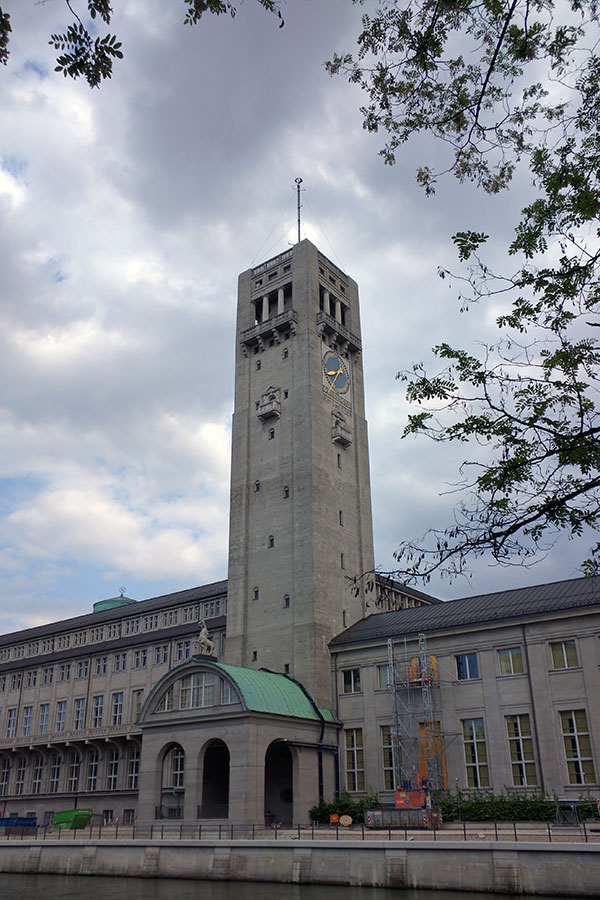
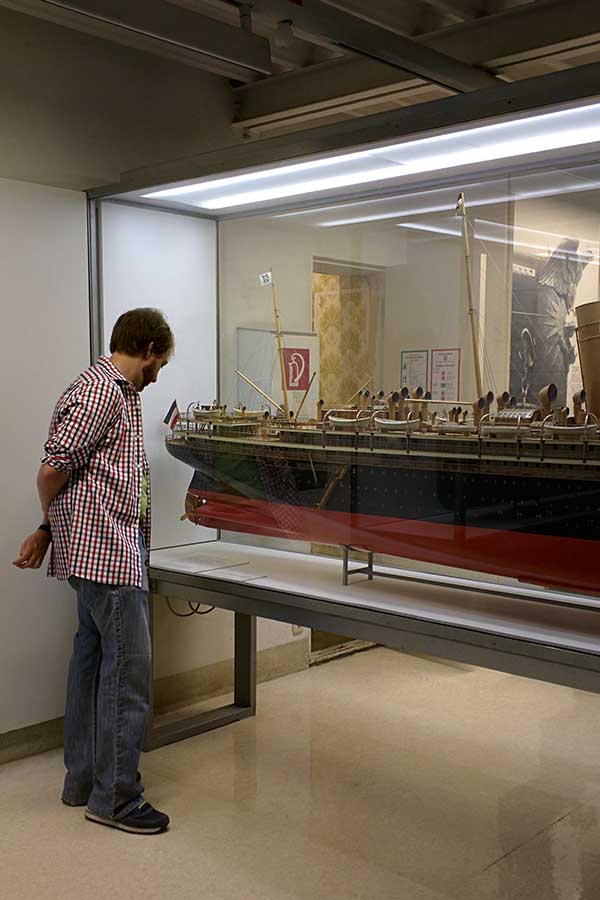
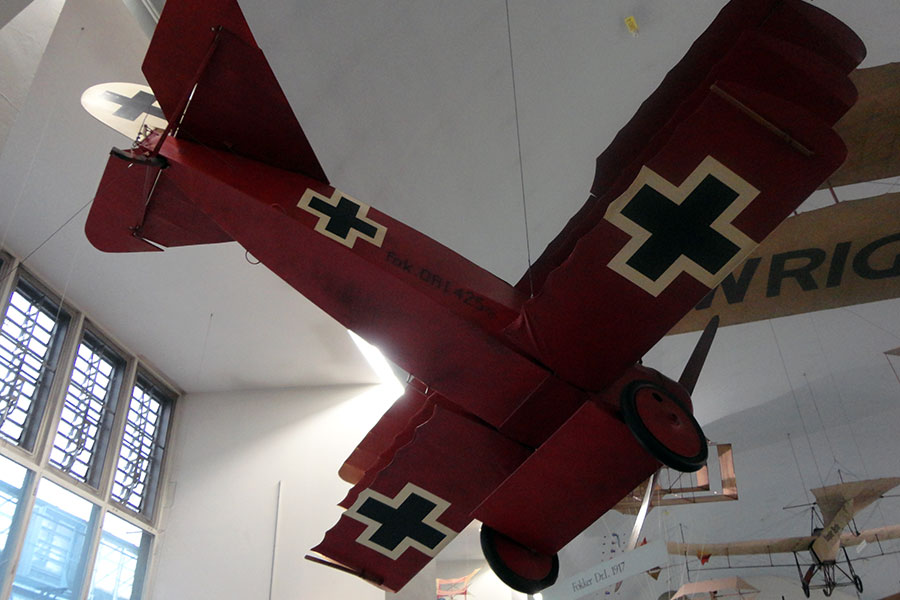
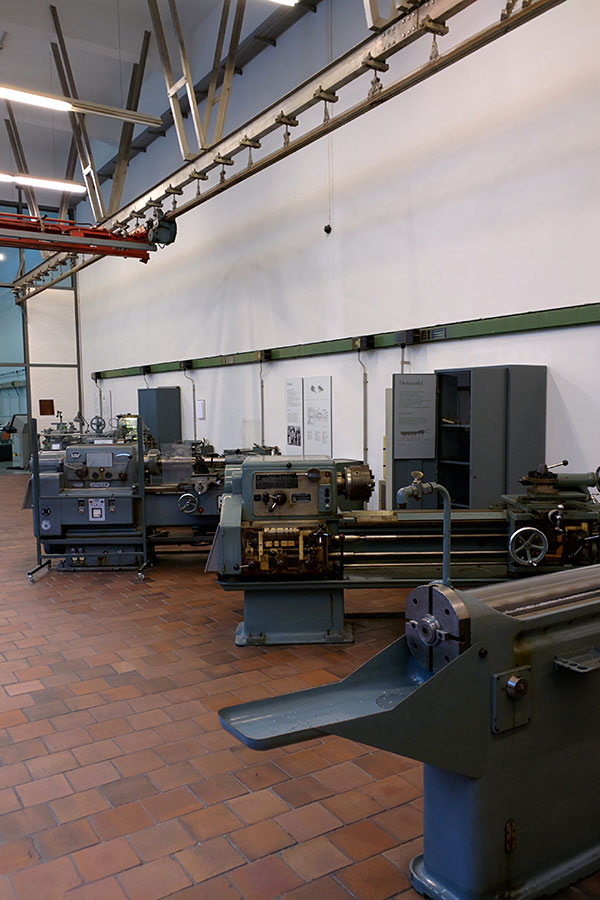
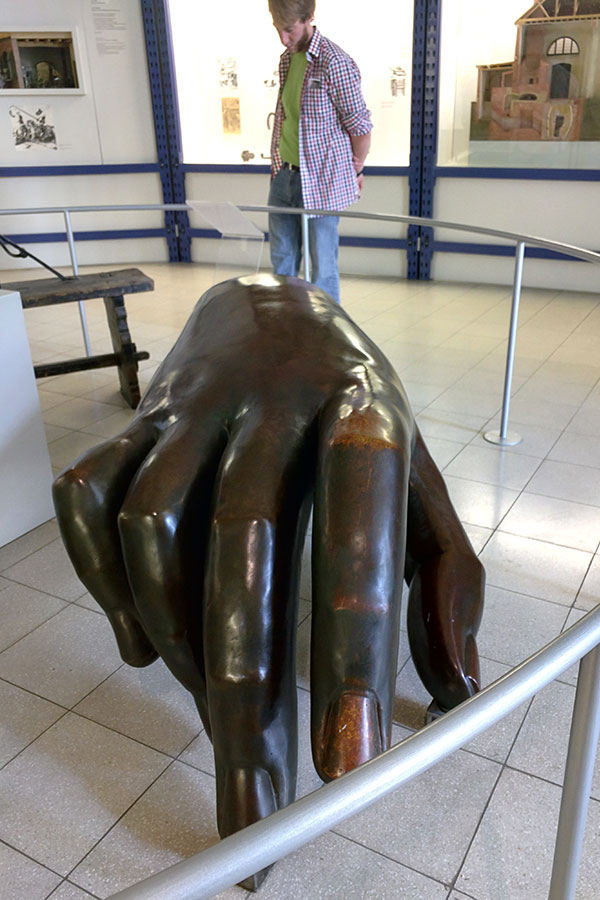

This sounds like an awesome museum! 🙂
Pingback: Munich's Bavaria Statue - Reverberations
Pingback: Munich Tips & Picks: My Favorites - Reverberations